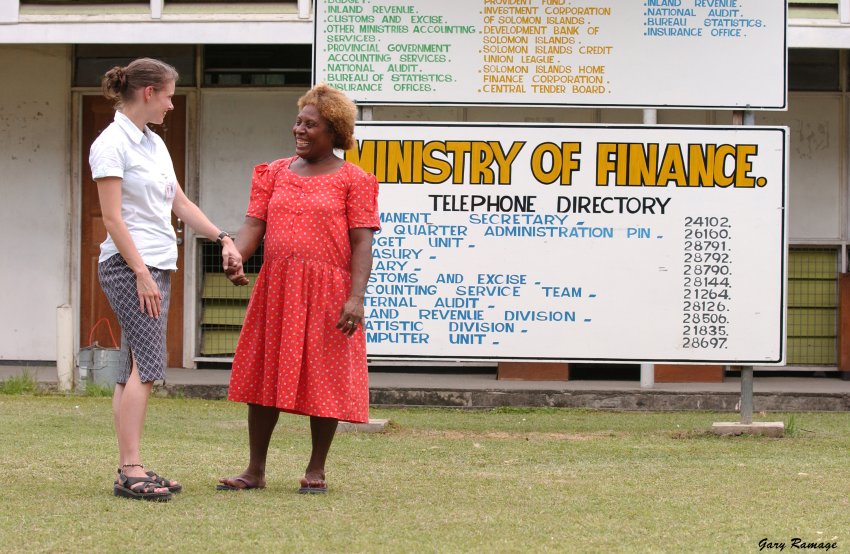
A tidal wave of outrage followed the Solomon Islands and China signing a security deal. Missing in the fury is any recognition that the Solomon Islands, a sovereign state, is seeking to promote its “national interests”.
Solomon Islands Prime Minister Manasseh Sogavare said his government entered into this arrangement with its eyes “wide open”. This counts for nothing for its more powerful neighbouring nations who presume to know what is best for the Solomon Islands.
The day before the agreement was signed, the Sydney Morning Herald and The Age described the island state as a “fly-speck country with half the population of Adelaide and one tenth its economy”. After the signing, they declared Australia’s leaders should hang their heads in shame as a “hostile power” has apparently gained access to a region that Australia deems to be its special “sphere of interest”.
Head of the Australian National University’s National Security College Rory Medcalf described the agreement as the “neocolonisation of the Pacific”. He said “the principal failure here is of high-level statecraft. It begs the question, if we can’t shape an outcome in a nearby small country where we’ve provided stability for decades, where can we?”
At least “statecraft” is now being described for what it is — acts of bullying and domination.
Medcalf does not ask the obvious question: why has the Solomon Islands government considered it necessary to make arrangements with China?
The Australian Financial Review (AFR) is running some of the more hardline responses. Christopher Joye wants Australia’s military spending to rise to 3–4% of GDP. It is currently about 2%.
Others are calling for Australia to establish bases and facilities in the Pacific. The fact that the agreement makes no provision to establish a Chinese naval base in the Solomon Islands has bypassed the hawks.
The nature of inter-state relationships and exercise of power is very much on show in the Pacific. Australia and its formidable ally, the United States, routinely speak of how they must always stand up to bullies.
The reality of international relations is that a great power dominates a weaker power. There is a spiral of domination and subjugation that continues until finally a “fly speck” country is dominated. At each step, the dominating force is said to be acting in its “national interests”.
If the country at the bottom of the food chain seeks to promote what it sees as its interests, all hell breaks loose. The rules of the game have been broken. This is why it is almost unthinkable that a middle power like Australia might take an independent stance or move away from the script that has been supplied by its great ally and friend, the US.
The Coalition and Labor responses show how they follow the same script. Labor’s Anthony Albanese and Penny Wong declared the new arrangements a crisis of PM Scott Morrison’s leadership. Defence minister Peter Dutton responded by attacking China and accusing Labor of working for the Chinese. As Morrison sought to deflect Labor’s attacks by stating the Solomon Islands is a sovereign nation, he also announced a $428 million upgrade of air force bases to support fighter jets and anti-submarine helicopters.
Respecting sovereignty?
Political opportunists are quick to say they respect others’ sovereignty. Sovereignty is the exercise of power by a state, is broadly understood to mean that nations — powerful and “fly-speck” countries — are free to arrange their own domestic and international affairs.
It is a theory that works for the powerful, as the imperialist history of the US shows, and not so much for the weak. Despite having had no engagement with the Solomon Islands for 37 years, US Indo-Pacific Coordinator Kurt Campbell was dispatched to Honiara to “discuss” the new arrangements with the Solomon Islands government.
The US has a range of Compacts of Free Association (COFA) with Pacific nations. The arrangement does many things and importantly allows the US to operate armed forces in Compact areas and to “legitimately” demand land for operating bases, subject to negotiation. It also excludes other countries’ militaries, unless they have US permission.
This has far greater implications for Palau, the Marshall Islands and the Federated States of Micronesia than the current deal between China and the Solomon Islands.
Worryingly, a recent parliamentary inquiry into how best to develop relationships with Pacific nations included such Compact proposals.
China is no doubt seeking to gain influence in the Pacific, although its foreign ministry spokesperson Wang Wenbin said the China-Solomon security deal is “to promote social stability and long-term peace and security in Solomon Islands”.
But since China is now regarded by Canberra as the enemy, the corporate media are portraying the agreement as sinister, even while the details are still secret.
Sogavare has been at pains to stress the new security arrangement is not at the expense of existing relationships with Australia or anybody else.
The Solomon Islands, with a population less than half that of Adelaide and an economy one tenth the size of that city, will struggle to stave off the coercion and bullying of more powerful “allies”.